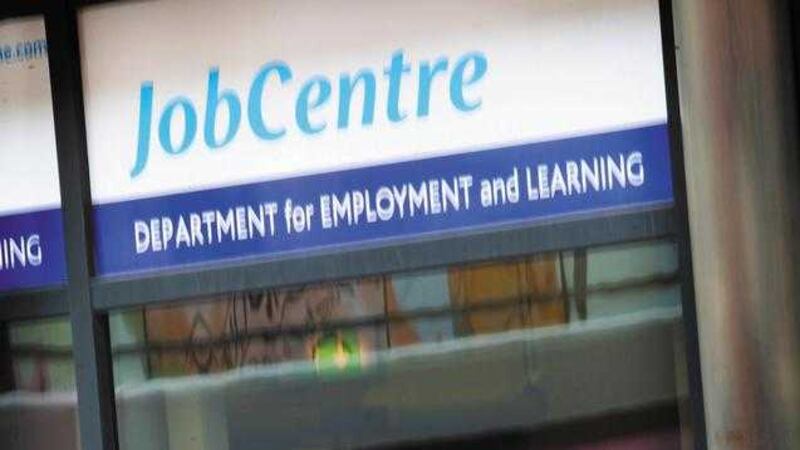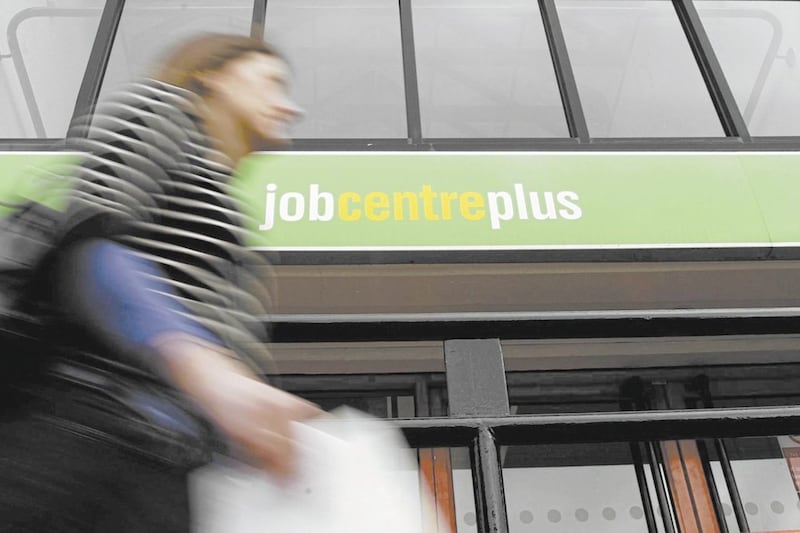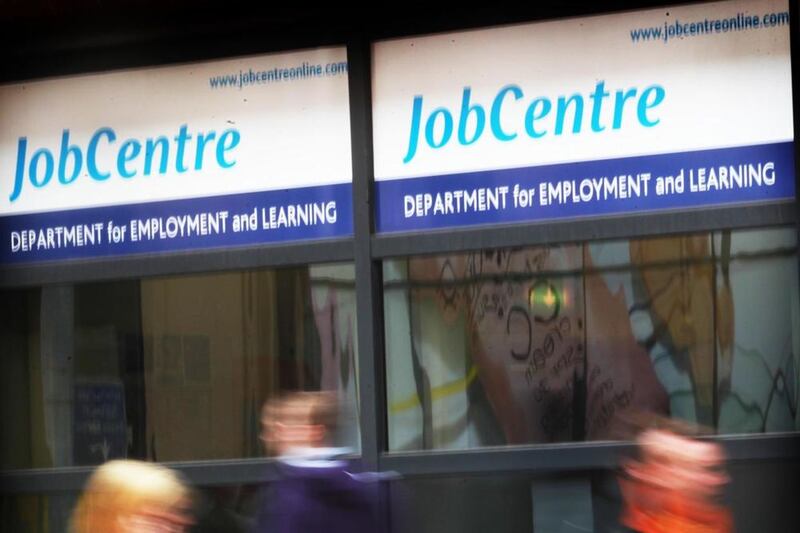NORTHERN Ireland's economic inactivity rate fell has fallen to its lowest rate since 1992 - but more people joined the dole queue last month.
There were 200 additional people claiming unemployment related benefits in February with the overall number rising to 38,300.
But according to the north's labour market survey, produced by the Northern Ireland Statistics and Research Agency (Nisra), the economic inactivity rate decreased to 26.4 per cent.
Meanwhile the the Index of Production for the north increased by 1.3 per cent over both the quarter and year, while the Index of Services showed an increase of 6 per cent over the quarter and 2 per cent over the year.
Enterprise minister Jonathan Bell said the figures were "encouraging".
"I welcome in particular the record employment numbers and the historic low in economic inactivity rates. In addition, the number of employee jobs continues to increase," he said.
“While the Northern Ireland unemployment rate (6 per cent) is above that for the UK (5.1 per cent), it continues to compare very favourably to the December 2015 rate for the European Union (9 per cent) and the January 2016 rate for the Republic of Ireland (8.6 per cent).
"The increases in economic output are welcome but must be considered in the context of more recent job loss announcements in the manufacturing sector, indicating that there is more work to be done. My department and Invest Northern Ireland continue to work together to support businesses to explore export markets, as well as encouraging foreign direct investment here."
Looking at the UK as a whole, Danske Bank chief economist Angela McGowan said: "In the UK the unemployment rate remains at 5.1 per cent and the annual growth rate in average weekly earnings excluding bonuses rose by 2.2 per cent compared with a year earlier."
"At Danske Bank we think that UK wage growth will pick up gradually from here due to the tighter labour market. That said, it is likely that employment growth in the UK will slow in the first half of 2016 due to lower economic growth amid 'Brexit' uncertainties.
"The same holds for Northern Ireland where investment levels are also expected to lose momentum in the run up to June 23 and undoubtedly new employment opportunities will be impacted.”







